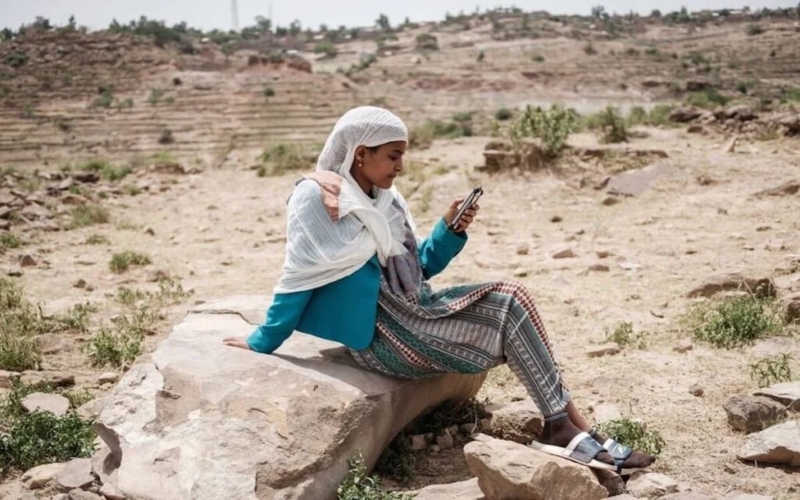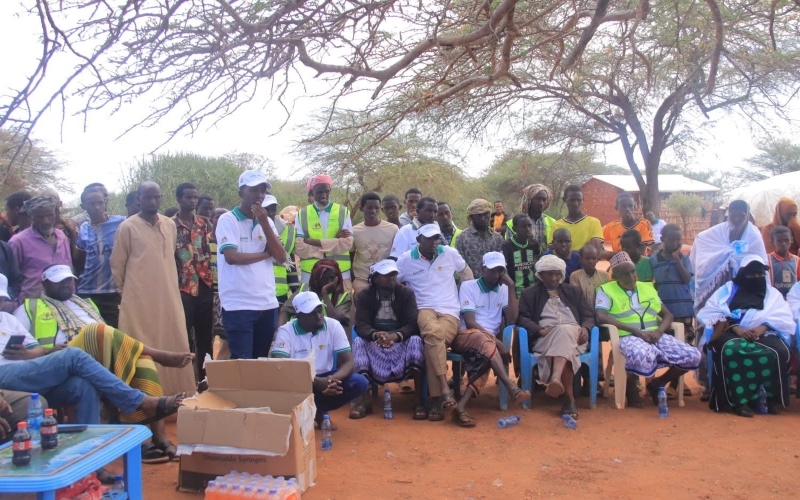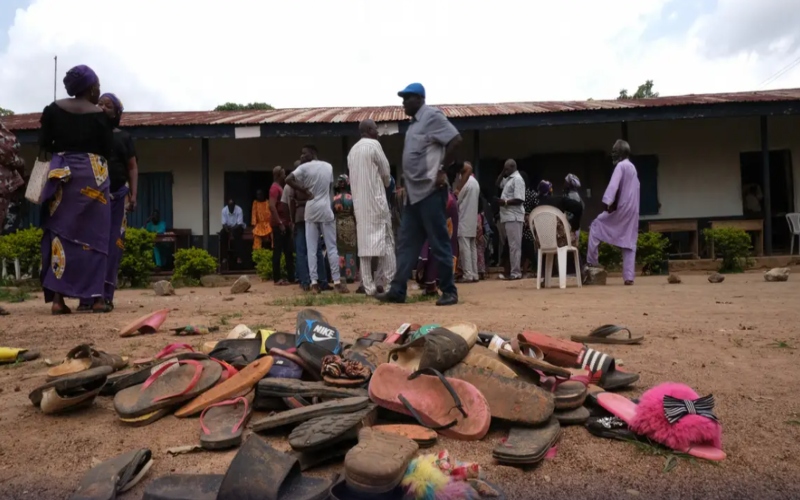New solar energy project powers up lives in Northern Kenya
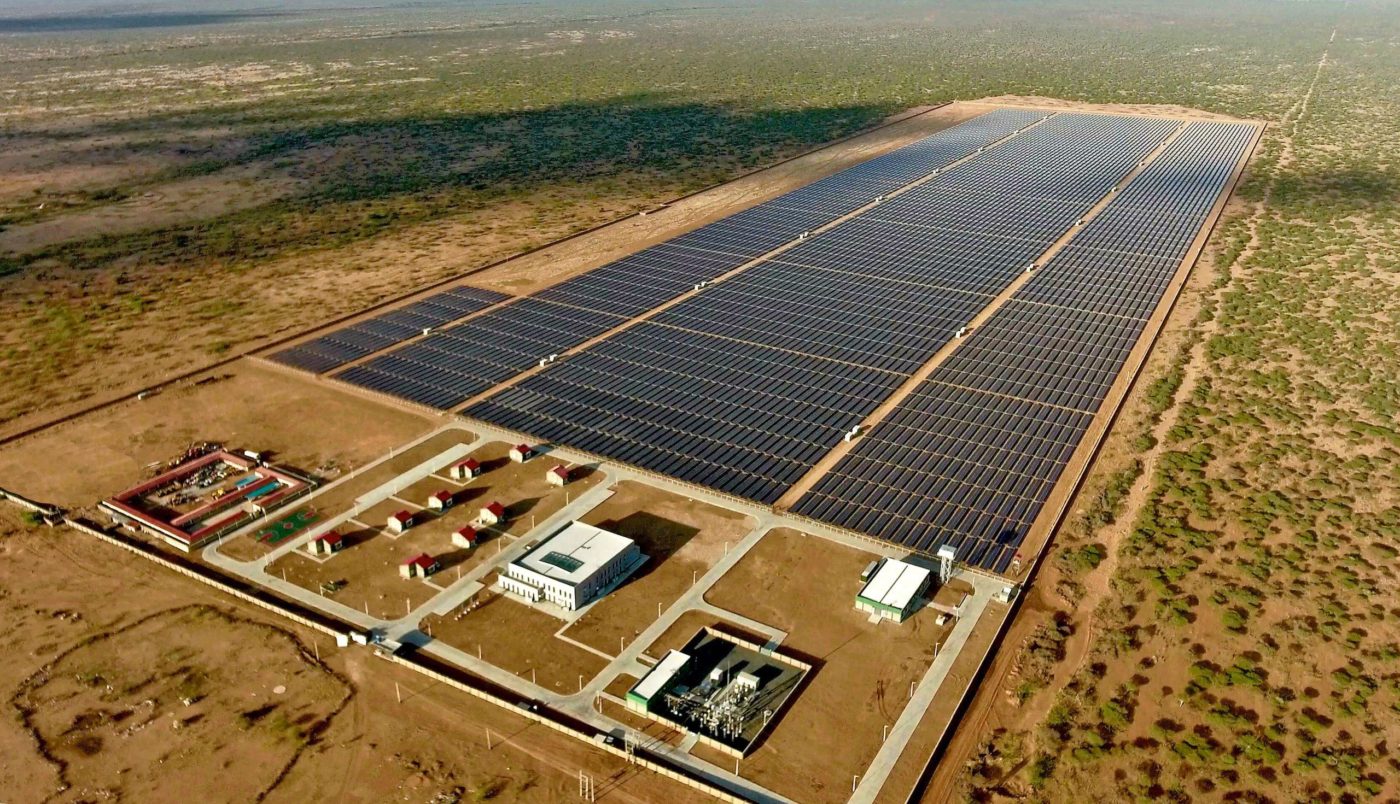
For the first time, true energy reliability has arrived, illuminating new horizons of socioeconomic possibilities.
Under the hot North-Eastern Kenya sun, long rows of solar panels tilt their faces toward the clear blue sky.
This 50-megawatt solar farm covering 85 acres in Garissa County is a sign of clean energy potential in a region where electricity access has been uncertain.
More To Read
- Domestic capital gains momentum as sub-Saharan Africa accelerates energy transition financing
- Senate flags 24 State agencies still performing county functions
- Renewables overtake coal in global electricity generation
- Somalia unveils plan to halve imported fuel for power generation by 2028
- Renewable power capacity to double by 2030 - IEA
- Africa lags in green jobs boom, holds just 2 per cent of the global sum
The panels imbibe the scorching morning rays, transformers humming as photons are converted to surging electrons. Just over a year since this vision of Kenya’s renewable future first flickered to life, the project is already electrifying lives across the far-flung county and its neighbours.
Where business activity was once stalled by frequent blackouts persisting for days on end, residents now enjoy an oasis of steady power supply. For the first time, true energy reliability has arrived, illuminating new horizons of socioeconomic possibilities for communities long left languishing in the dark.
On the outskirts, the bustling night market has solar-powered music and lights. Village health clinics safely store vaccines in solar-backed fridges. Scattered solar lights glitter across the dark landscape. And with panels powering their study, students can envision brighter futures. As the silent solar farm soaks up the harsh sunlight, a renewable energy revolution has begun for communities left behind for so long.
“Initially, Garissa relied on expensive and unreliable diesel generators that caused constant power outages,” says Hannington Gochi, a renewable energy technician with the Rural Electrification and Renewable Energy Corporation (REREC). Seeking a stable solution, the Government constructed transmission lines in 2019, connecting the region to the national grid.
While an improvement, it soon became clear that more was needed to meet the surging demand. With Garissa receiving abundant solar resources, the ambitious Garissa solar plant was commissioned. China Jiangxi Corporation for International Economic and Technical Co-operation (CJIC) partnered with REREC to construct the Sh13.58 billion ($122 million) project.
The installation is the largest solar power plant in East and Central Africa - a feat placing Kenya at the vanguard of renewable innovation on the continent. But more importantly, the project highlights the tremendous possibilities of solar energy to sustainably transform marginalised areas.
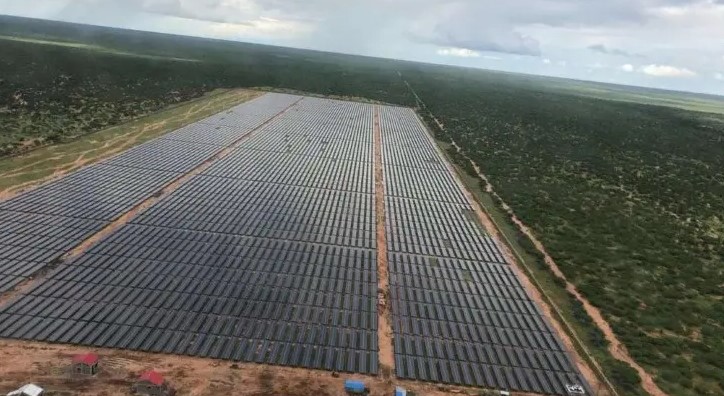 China Jiangxi Corporation for International Economic and Technical Co-operation (CJIC) partnered with REREC to construct the Garissa solar plant. (Photo: Construction Kenya)
China Jiangxi Corporation for International Economic and Technical Co-operation (CJIC) partnered with REREC to construct the Garissa solar plant. (Photo: Construction Kenya)
“With a steady supply of affordable power, Garissa can now invest in industries, businesses and infrastructure for the first time. This will drive job creation and economic growth,” Mr Gochi says. The region has already witnessed an uptick in households and enterprises connecting to the new grid, including artisans with workshops for welding and fabrication.
Recently, links to Kenya’s main grid transmit the solar power supply across the country too, Gochi says.
“We are entering an era where solar energy catalyses unprecedented growth across Kenya and, in particular, up north,” he says. Garissa’s humble solar site foreshadows transformations coming from harnessing the north’s underutilised sunlight reserves to create opportunities there.
Economic opportunities
The solar plant has brought new economic opportunities that directly benefit the local community. Priority is given to hiring Garissa residents for jobs ranging from facility upkeep to specialised roles.
“The panels require cleaning twice a year to maintain optimal output, so people are hired to do the cleaning,” Gochi explains. These and other temporary solar jobs, while small in scale, are making an outsized difference in the lives of Garissa residents, thanks to the multiplier impacts of a steady income.
The project has also implemented various Corporate Social Responsibility (CSR) initiatives to benefit local communities, including drilling a borehole for clean water access, constructing a dispensary and a primary school, building a road to connect farms, and enhancing security infrastructure.
“These efforts have been pivotal for garnering community support and ownership of the project,” Gochi asserts.
By diversifying and energising the regional economy, the project’s positive effects extend far beyond the energy sector. Contributing about 2 per cent of Kenya's total electricity mix, the Garissa solar plant has significantly reduced power costs in the previously underserved north.
“I used to close my salon by 5 pm before it got dark because we didn’t have electricity at home,” recalls Aisha, who opened her hair braiding business just months before the plant launched. “Now with power, I increased my operating hours and have so many more customers, especially on weekends.
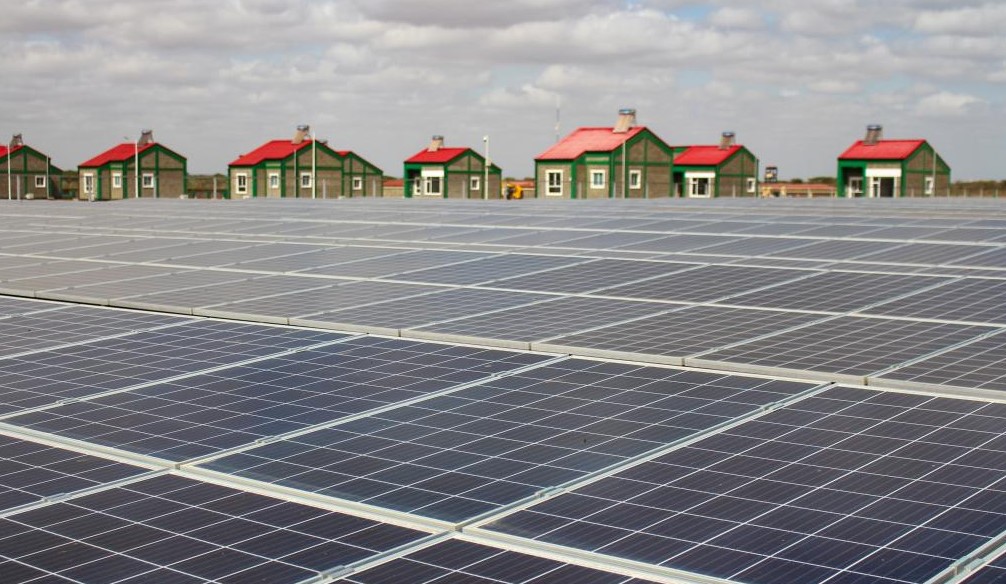 This photo shows the Garissa Solar Power Plant in Northeastern Kenya. (Photo: Xinhua)
This photo shows the Garissa Solar Power Plant in Northeastern Kenya. (Photo: Xinhua)
The reliable solar power has also brought Mursal’s dream of running a cold juice shop to life.
“I no longer have to turn away customers or throw out spoiled fruit that went bad during blackouts,” he says. Reflecting sentiments echoed by many other business owners in the county, Mursal is now able to store produce safely while staying open later to capture more sales.
Affordable energy access is likewise paying dividends for students like 16-year-old Fatima.
“I can now study at night for exams without struggling to see the books in candlelight,” Fatima says. Better grades translate into increased opportunities for Fatima and her peers, as a quality education remains out of reach for most without electricity at home.
With economic horizons expanding, health outcomes are also improving thanks to better storage for medications at clinics and more reliable equipment. By connecting healthcare infrastructure to the new grid, facilities can now provide higher-quality care. For expecting mothers like Halima, giving birth is notably safer now - a solar assist that is saving lives.
As Kenya’s largest solar installation, the Garissa plant serves as a preview of the country’s renewable capabilities. Bolstered by abundant sunshine, solar energy can sustainably deliver socioeconomic progress even in remote regions while creating jobs.
The project is already changing lives but also illuminates the possibilities of an even brighter tomorrow for marginalised communities powered by Kenya’s untapped solar bounty. The Government aims to harvest 400 megawatts from solar sources across the country and achieve universal household access by 2022.
While the Garissa plant's panels quietly soak up rays overhead, residents below now see new pathways out of poverty come into focus with each glint of possibility. Though the journey remains long, many are hopeful that the newly electrified future here will continue enlightening lives for years to come. For them, the rays of sunshine powering the promise of community progress shine brighter with each new day.
Top Stories Today







